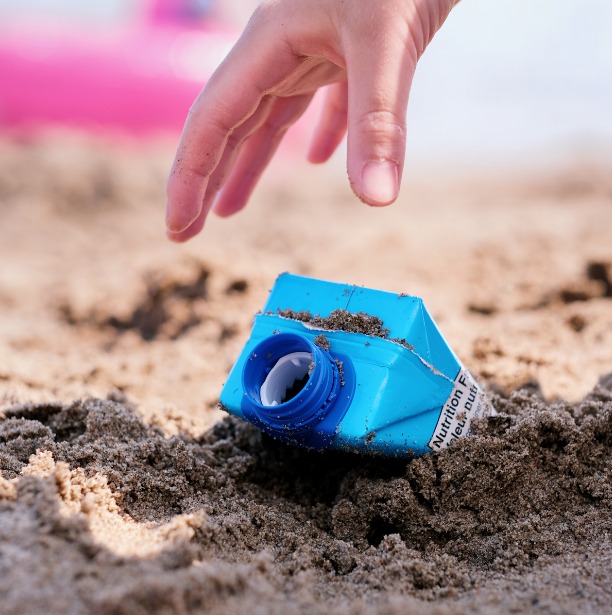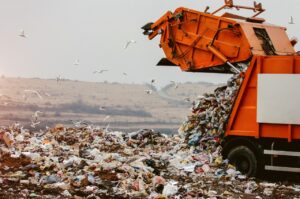 Garbage is perhaps as old as the humans on earth. With this correlation, garbage disposal should also be an activity intrinsic to the growth of civilizations spread over millions of years. We find sensibly laid out sewerage systems and garbage pits in the remains of the oldest civilizations. Here in Pakistan, Harappa, Mohenjodaro and Taxila are perfect examples in this context. If the people dwelling in these areas could dispose of their garbage in an organized manner such a long time ago, it’s a shame that we, in Pakistan, cannot do that while living in the 21st century. In most of the cosmopolitan cities of Pakistan, garbage disposal remains a matter of serious concern.
Garbage is perhaps as old as the humans on earth. With this correlation, garbage disposal should also be an activity intrinsic to the growth of civilizations spread over millions of years. We find sensibly laid out sewerage systems and garbage pits in the remains of the oldest civilizations. Here in Pakistan, Harappa, Mohenjodaro and Taxila are perfect examples in this context. If the people dwelling in these areas could dispose of their garbage in an organized manner such a long time ago, it’s a shame that we, in Pakistan, cannot do that while living in the 21st century. In most of the cosmopolitan cities of Pakistan, garbage disposal remains a matter of serious concern.

Why is this an emergent and serious issue for us? Going around any major urban centre or a small town, one would find openly dumped garbage at various places. Stray dogs, flies, and even poor kids are found scavenging for food. A matter of shame. Such callous handling of garbage causes diseases resulting in poor health in general. Then, it is a matter of display of a nation’s degeneration – a nation that claims to be “pure” and “great” but cannot dispose of its garbage? Is there collective paralysis? Are we worse in a civic sense than our ancestors who lived thousands of years ago? One is at loss to find answers to these questions.
What is the remedy? What would it take to evolve a practical strategy to cater for the disposal of garbage? It’s a simple but a million-dollar question. Why? Because if it were so easy to do, then we could have found a solution. Let us venture into this seemingly intricate issue.
Any issue confronted by a nation has to be resolved by a collective effort of the state and society. Firstly, let us examine what can be done by society to ensure that we do not see garbage scattered or thrown around all over. It is the responsibility of each and every parent, teacher and elder to develop a sense of responsibility in the children. Only then will they grow up to be civilized citizens. Mostly garbage is not properly thrown in the designated bins on the roadside and we find it scattered all around. Thus, let us be clear that we can only improve our garbage disposal system if people act more responsibly. This requires a massive campaign on media, and awareness programs at the school and educational institutions, combined with a nationwide drive to curb irresponsible garbage throwing. Civic sense should be an essential part of our basic education.
 The development of a comprehensive strategy for garbage disposal is an all-important aspect that needs an organization and serious-minded people to implement. What should that organization be? Local governments or local bodies are the ones who are wholly and solely responsible for the disposal of garbage. I am reminded of my visit to the beautiful town of Irdir in Turkey in 2002. During one of the dinners, I had a chance to meet the head of the civil administration of the town. We had an interesting discussion on various subjects. I particularly praised the way the town was kept organized and clean. He told me that it is not his job, “Baladia” does it. Interestingly we also call the local government “Bladia” but what a contrast. Our “Baladia” all over the country are virtually moribund. The local governments are there but are neither sufficiently funded to do their assigned job nor do they have the will to do so. The local bodies system is choked with corrupt practices, inefficiency and total neglect. In order to improve the garbage disposal system in the country, we need to fund, organize and empower the local bodies system.
The development of a comprehensive strategy for garbage disposal is an all-important aspect that needs an organization and serious-minded people to implement. What should that organization be? Local governments or local bodies are the ones who are wholly and solely responsible for the disposal of garbage. I am reminded of my visit to the beautiful town of Irdir in Turkey in 2002. During one of the dinners, I had a chance to meet the head of the civil administration of the town. We had an interesting discussion on various subjects. I particularly praised the way the town was kept organized and clean. He told me that it is not his job, “Baladia” does it. Interestingly we also call the local government “Bladia” but what a contrast. Our “Baladia” all over the country are virtually moribund. The local governments are there but are neither sufficiently funded to do their assigned job nor do they have the will to do so. The local bodies system is choked with corrupt practices, inefficiency and total neglect. In order to improve the garbage disposal system in the country, we need to fund, organize and empower the local bodies system.
In essence, the way forward lies in: Resuscitation of local bodies system, provision of funds to these local bodies, efficient human resources selected on merit, nationwide sustained awareness campaign through all forms of media, a system of penalty for the defaulters of irresponsible garbage disposal. And finally – Wake up Pakistan!

Leave a Reply